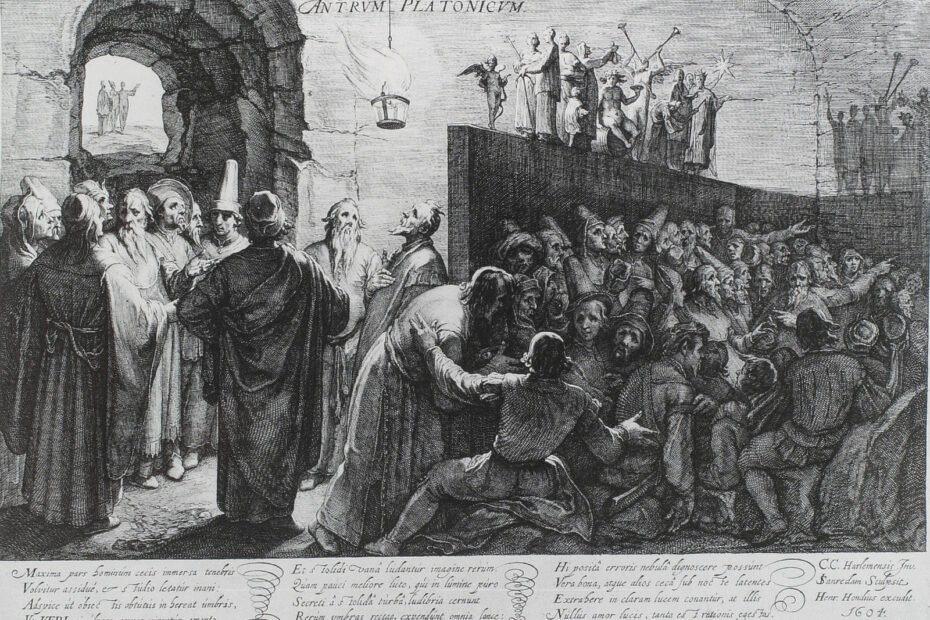Discussion Post I submitted for my Atlantic University TP5110 Course – July 23, 2020
I have an eighteen-year-old and he’s convinced that he has all the answers and I know nothing. In his first statement, “…I know nothing,” Socrates is addressing one of the biggest challenges to spiritual evolution, and that’s the ego, which is what my son and all teenagers tend to use as their primary arbitrator of truth. Unfortunately, this tendency doesn’t end with adolescence. As we grow in spiritual maturity, as nearly every religion and spirituality stress, it’s the ego we must overcome if we are ultimately going to tap into the Universal or Divine Intelligence.
As Richard Tarnas notes, “Socrates saw his own task as that of finding a way to a knowledge that transcended mere opinion, to inform a morality that transcended mere convention” (1991, p. 33) One of the hallmarks of our times is that most people argue or debate with their feelings as opposed to building an argument on a particular school of thought or a series of logical points. This type of thinking is what Socrates aimed to transcend, since, once again, it’s rooted in the ego. And, therefore, Socrates’ “personal mission,” as Tarnas conveys it, is “to convince others of their ignorance so that they might better search for a knowledge of how life should best be live” (1991, p. 33).
So Socrates’ bases his statement that he knows nothing on humility, and that there is no way a person’s local or critical mind can ever comprehend the vastness and complexity of God’s creation. His solution was to train people to understand that the fullness of humanity is to “take account of the innermost reality of a human being, his soul or psyche” (1991, p. 33). And this is what he meant by “Know thyself,” words inscribed on the Temple of Apollo at Delphi. “Know thyself” is the greatest of the “Hermetic maxims,” says Alexander Gumm, which “is the call to action that sets us on the quest to understanding all of life’s mysteries.” He adds, “For when we truly know ourselves, we will know the universe, as well” (Gumm, n.d.).
Plato’s image that “Human beings are like prisoners chained to the wall of a dark subterranean cave,” as Tarnas describes, is a perfect description for how the ego can keep us trapped and unable “to see the light of a fire that is higher up and at a distance” behind them” (1991, p. 42). Or as the Eagles sing, “So often times it happens that we live our lives in chains, and we never even know we have the key,” (Eagles, 1974). And what is the key? “Know thyself” so that it’s possible to undo the chains and “leave to enter into the world beyond” to “glimpse true reality,” as Tarnas says (1991, p. 42). He adds that for Plato, “the great task facing the philosopher was to emerge from the cave of ephemeral shadows and bring his darkened mind back into the archetypal light, the true source of being” (1991, p. 42).
With the image of a person freeing themselves from the dark cave, or their ego in other words, to see the light of truth and reality firmly etched in my mind, I asked my son what “Know thyself” means to him. He looked up from his iPhone, stared at me blankly for a second, and then provided these deep and insightful words, “Nothing,” before returning to his phone. The famous Mark Twain line immediately came to my mind, “Too bad that youth is wasted on the young” (Twain, n.d.). I suppose we’re all work in progress.
References
Eagles (1974). “Already gone.” On On the border [Record]. Los Angeles, CA: Asylum.
Gumm, A. (n.d.), “Secrets of alchemy: the emerald tablet decoded.” Retrieved from https://archive.org/stream/SecretsOfAlchemy_201609/Secrets_Of_Alchemy_djvu.txt
Tarnas, R. (1991), The passion of the Western mind: understanding the ideas that have shaped our world view, New York: Ballantine Books.
Twain, M. (n.d.), AZ Quotes [Website]. Retrieved from https://www.azquotes.com/quote/1358515
